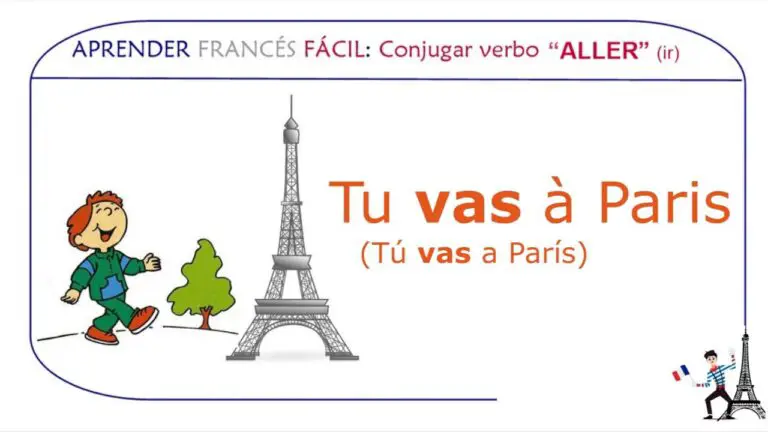The English conjugator
You are writing a text in French and you are not quite sure how to correctly conjugate the verb in Passé Composé? You get confused again when you want to form the passive voice of a verb in Plus-que-parfait? And what is the difference between Imparfait and Conditionnel Présent? The conjugation of French verbs is not really simple. It is true that many of the endings are similar, but perhaps that is precisely where the difficulty lies! Don’t panic, with a simple click on our website you will find all the regular and irregular forms in table form, so that you don’t make any more conjugation mistakes, consult our verb tables!
What is the verb aller in French?
The literal Spanish translation of the verb aller is “ir”. This verb is frequently used in French, as it allows us to describe the near future.
How do you conjugate the verb aller in the simple future tense?
I will go to the mountain next week. La semana que viene iré a la montaña.
How do you write ir in the present tense?
Verb forms: ir (to go)
[Irregular in the present indicative (voy, vas, etc.), in the present subjunctive (vaya, vayas, etc.) and in the preterite (fui, fuiste, etc.).
AVOIR (TO HAVE) Verb Conjugation Present tense
The verb aller is one of the most essential verbs in French, although its ending is -ER- it is an irregular verb. Therefore, if you want to learn to conjugate it in all verb tenses, I recommend you to practice and memorize the changes it has.
The easiest way to learn French verbs is to practice. Although the verb aller is not so easy, I recommend that you don’t get overwhelmed thinking about whether you should conjugate it in past simple, past imperfect, past compound, etc. Instead, try to write your biography; write anecdotes from the past, the plans you have for the future and you will see that this exercise will allow you to master it and improve your level of French.
French Lesson 50 – NEAR FUTURE TENSE Verbs Conjugation
Back to the dictionaryBeginning of the pageDid you detect an error? Let us know, we appreciate your comment, click here! Indicatif – Subjonctif – Conditionnel – Impératif – Formes impersonnelles
Back to the dictionaryBeginning of the pageDid you detect an error? Let us know, we appreciate your comment, click here!Indicatif – Subjonctif – Conditionnel – Impératif – Formes impersonnelles
Back to the dictionaryBack to topDid you detect an error? Let us know, we appreciate your comment, click here! Indicatif – Subjonctif – Conditionnel – Impératif – Formes impersonnelles
Back to the dictionaryBeginning of the pageDid you detect an error? Let us know, we appreciate your comment, click here! Indicatif – Subjonctif – Conditionnel – Impératif – Formes impersonnelles

